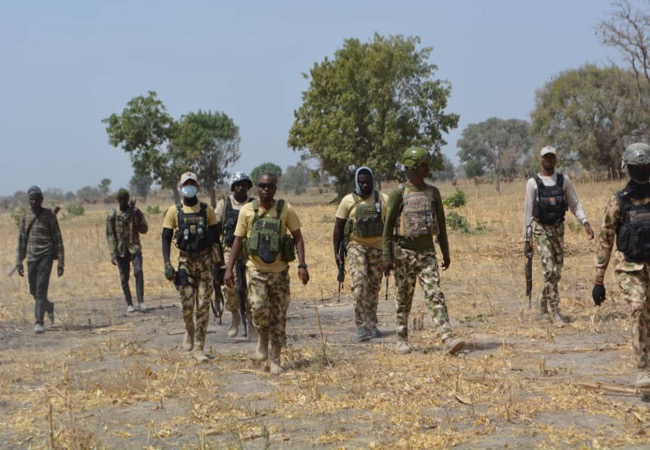Jude Nwauzor, AMCON Head of Communications
—————————————————————————————————————————-
With so many court cases numbering over 3,000 and counting, Mr. Jude Nwauzor, Head of Corporate Communications Department at Asset Management Corporation of Nigeria (AMCON), did not mince words highlighting the difficulties the Corporation faces dealing with recalcitrant obligors in its effort to recover N5trillion for Nigeria…Excerpts:
Why is it becoming difficult for AMCON to recover its N5trn debt?
In a decent society, it is doable, it is recoverable, but Nigeria is a peculiar country. Nigeria is not the only country that have set up an Asset Management Corporation (AMC), but what works in other countries don’t sometimes work in Nigeria. The AMC model is a borrowed idea that worked in other countries, and it has worked well. It was used in Malaysia to recover debts, it was used in Ireland, and America set up its own AMC and it also worked and they all have life span of 10 years to be able to do recoveries. Our own AMCON was set up after the crash of the Nigeria economy in 2010. The government set it up to recover bad debts, which made us to buy over the bad debts from the banks, recapitalised the banks so that they can go into their normal business of lending while we go out to recover the money. We have been doing our best, which is evident in a recent statement of the Minister of Finance that AMCON has so far recovered over N1trillion and counting. Aside that, we have several assets that are for sale, which have not been disposed due to certain hitches confronting us. AMCON MD, Mr. Ahmed Lawan Kuru has often said that AMCON has some limitations as many of our clients have engaged us in different courts. So, because we have many court litigations, we are unable to sell some of these assets. Until the case is decided by the court, we cannot as AMCON take laws into our own hands and that has contributed to some of the lull in selling the assets.
How many cases do you have pending in the court?
As at this moment, we have over 3000 cases in court and we are still counting. Every day we are in court for one case or the other. Even though we have facts and evidence, which gives us legitimacy of these accounts in our custody, we are however constrained to wait for the courts to make their decision. But the question really should be; did they borrow this money? If the answer is yes; did you pay back this? No. Meaning that you defaulted? Yes. For us the cases should be that simple. That was why I said earlier that in a decent society, these cases should not drag as long as they drag in Nigeria due to technicalities of law. But if at the end the court asks a debtor to go and pay but the debtor does not have money, then such a debtor would forfeit asset, which AMCON can convert to money. But in Nigeria, the legal tussles take different dimensions. You can have a case run in court for 10 years. Within that period even the asset you have taken over would have depreciated a whole lot making recovery difficult.
Could this problem be attributed to policies and act that set up AMCON?
If you recall in 2018, the MD of AMCON, Ahmed Lawan Kuru said that the negotiation with obligors as well as their promises are not working, which resulted in AMCON changing its recovery process to more of enforcement, which is why you see more reports of AMCON took overs. We are doing all it takes to recover the money.
How do you manage the recovered money?
The recovered funds go to the government of the Federal Republic of Nigeria through the Central Bank of Nigeria (CBN). The money belongs to all Nigerians, because it was the tax payer’s money that was used to set up AMCON in the first place. So the money that we are recovering is for Nigerians. The money we are talking about is almost 50% of 2019 budget. So, if we are to recover the over N5trn, the rail line project, roads, power among other infrastructure needs of Nigeria would be achieved. That is why we have been engaging the different stakeholders the judiciary and the national assembly inclusive to harp on the need to recover these debts. Recently, the management of AMCON met with the Vice President of the Federal Republic of Nigeria, Prof. Yemi Osibanjo, and he noted that very soon, the government may stop patronizing AMCON debtors.
Who are these people (debtors)?
They are Nigerians, they are very influential people, and they are the people we hitherto refer to as men and women of timber and caliber. They are captains of industries. The bottom line is that these people are heavily indebted, living fictitious live, flying on private jets and so on who are not supposed to be allowed to walk free because of the evil they committed against the economy, which we are all suffering.
Was the act that set up AMCON faulty or you are pushing for more authority to be able to prosecute debtors in shorter period?
That was why I said that we are engaging the National Assembly. As you know, the 9th Assembly is yet to settle down for business. The act was set up in 2010, and was amended in 2015. But because of the new challenges that we are experiencing now, the management has gone back to NASS because of other areas that we need to sharpen and strengthened to be able to recover these debts faster. So everything that is legal is under consideration.





